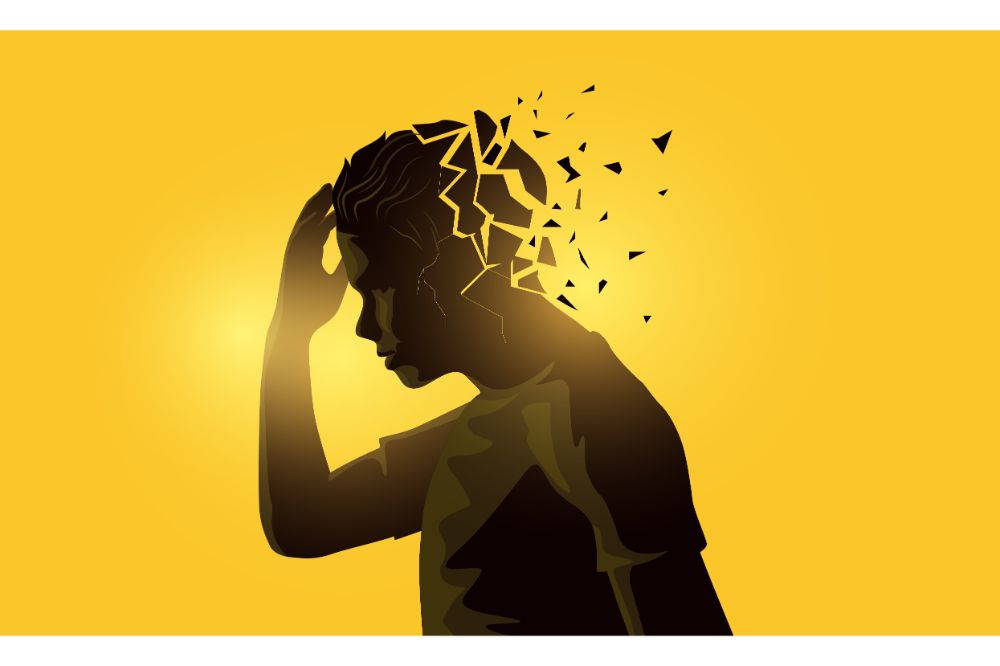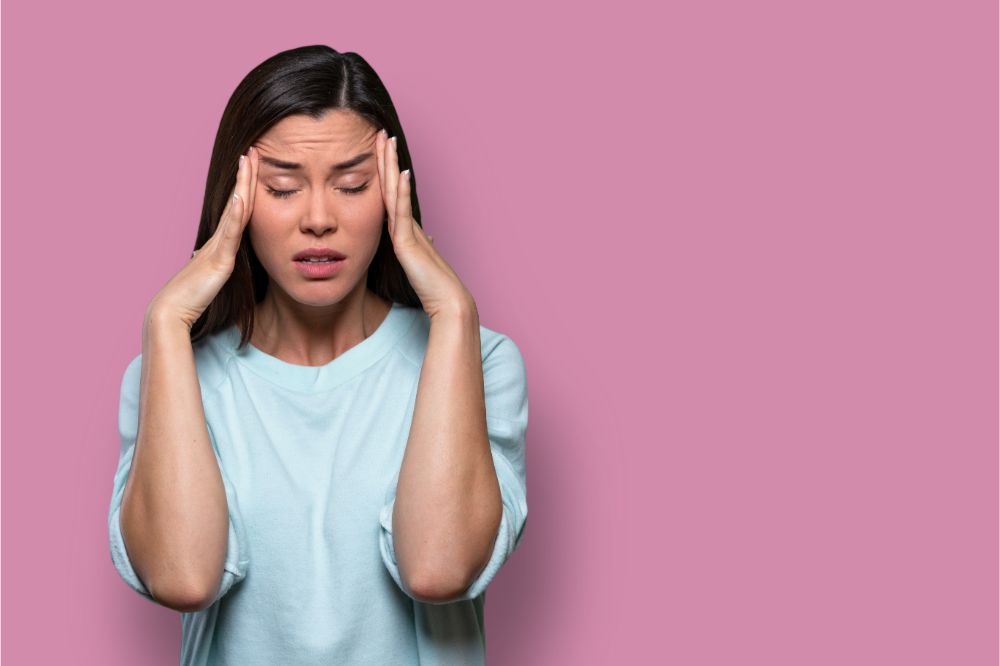As a BetterHelp affiliate, we receive compensation from BetterHelp if you purchase products or services through the links provided
Have you ever experienced the physical symptoms of anxiety in your body and not known how to get rid of them? Don’t worry. You are not alone. Experts say that one out of 20 people experiences anxiety at one time or another in their life.
It may often include anxiety about your health, where you may misinterpret normal bodily functions as dangerous signs that threaten your health. In this article, we will take a closer look at how to help people with health anxiety to overcome their health worries.
If you want to know how to win the struggle against anxiety symptoms, keep on reading and find out.
What Is Health Anxiety?
There is nothing wrong with worrying about your health, especially in a time of the global pandemic and amid fear of the Covid-19 virus breakout. But that is normal and necessary so people can be more careful about certain things that may threaten their body and mind health.
The difference is that people with health anxiety constantly worry about the slightest problem that may occur in their bodies. For instance, if their heart rate increases, they are worried that they may get a heart attack from that.
This obsessive worry about their health is also called illness anxiety by medical experts and can impact a person. This medical condition can have a severe impact on the mental health and the body of such a person.
With health anxiety symptoms, a person believes that they have an illness that they don’t have, which may cause anxiety. So this anxiety disorder is quite a severe problem and needs to be treated with the most effective treatment available.
What Are the Symptoms Of Health Anxiety?
It is essential to know the symptoms that go with the anxiety cycle to recognize them when you see them. There are several common symptoms of this medical condition, and the following is a list of them.
- The person is worrying that normal bodily sensations are symptoms of serious illnesses. A good example is when people think they have heart attack symptoms when they are out of breath.
- You are preoccupied with getting sick or developing a severe illness, and nothing can convince you otherwise.
- Another symptom can be that you are easily alarmed and worried about your health
- If you avoid places where there are many people or just try to avoid all contact with other people.
- When test results come back negative to say that you have nothing to worry about, you are not assured.
- If you are repeatedly checking your body for signs of illnesses and other symptoms.
- Constant talking about an illness and even making appointments with the doctor so you can be assured.

How To Break the Cycle
To break out of this cycle of anxiety will take some effort from your side, while you must also recognize the symptoms. The following steps will help you have a healthy life and mind to go on with your daily activities.
Remember that this condition can be a vicious cycle, so you need to get expert medical advice.
Step 1: Recognize the Symptoms
The symptoms or bodily sensations you experience are the triggers that will get you in a state of anxiety. This can be a sore throat, and your mind will tell you that it must be the beginning of something serious.
Step 2: The Wrong Interpretation
As soon as your mind tells you that this is the symptom of a severe illness, it would be best if you calmed yourself down. One can do this by telling yourself that it doesn’t mean that a sore throat is a severe illness that may kill you.
Remind yourself that it can be just a regular sore throat that comes and goes, and keep telling yourself that. This way, you put a protective mechanism in place to stop your mind from reacting to the evolutionary survival mechanism in your brain.
Step 3: The Increase In Anxiety
If you do not stop the increase of anxiety at this stage, you may increase the symptoms of worry and uncertainty. Worry and anxiety are controllable mental activities and can be decreased with other positive thoughts or by trying to do something positive.
Step 4: Focus On the Symptoms
Usually, when you get to this stage, your worry skyrockets, and you fixate on the symptoms, which makes it seem to increase in intensity. The sympathetic nervous system triggers this anxiety to provide a fight or flight reaction to your mind and body.
To keep this from escalating, you can remind yourself that this is a normal bodily sensation when you are in this mode. So to embrace it, you will help yourself calm down and let go of the feeling of stress and worry.
Step 5: Looking For a Cure
This is when you start to consult medical books or Google for symptoms of the illness you think you may have. Every time you take your blood pressure or check your pulse, you are making it worse even if you are just attempting to make yourself feel safe.
This fear or anxiety response is what you need to get under control, but how to do it? The method to get it under control is called response prevention. If you know the symptom, you can start by getting that under control.
If you are not successful in stopping the anxiety at the last stage, you can start by telling yourself that nothing happened. You are still alive, the symptoms did not increase, and there are no other symptoms to support your fear.
This might be difficult, but you can overcome the fear. To see more about this treatment method, go here.
Conclusion
You can see that the anxiety cycle is not something you should take lightly, and medical tests can determine whether you have a problem. If the person is a child, they should be examined by a child anxiety expert to provide the correct process for recovery.
Now that you know the symptoms, you should consult your doctor and follow their instructions to have a better quality of life.
- Stress Management: What is the Relationship Between Stress and Addiction? - June 28, 2024
- Exploring Techniques to Maintain a Healthy Lifestyle without Drugs - May 28, 2024
- How Acupuncture Helps Treat Chronic Fatigue Syndrome - May 28, 2024
This site contains affiliate links to products. We will receive a commission for purchases made through these links.




